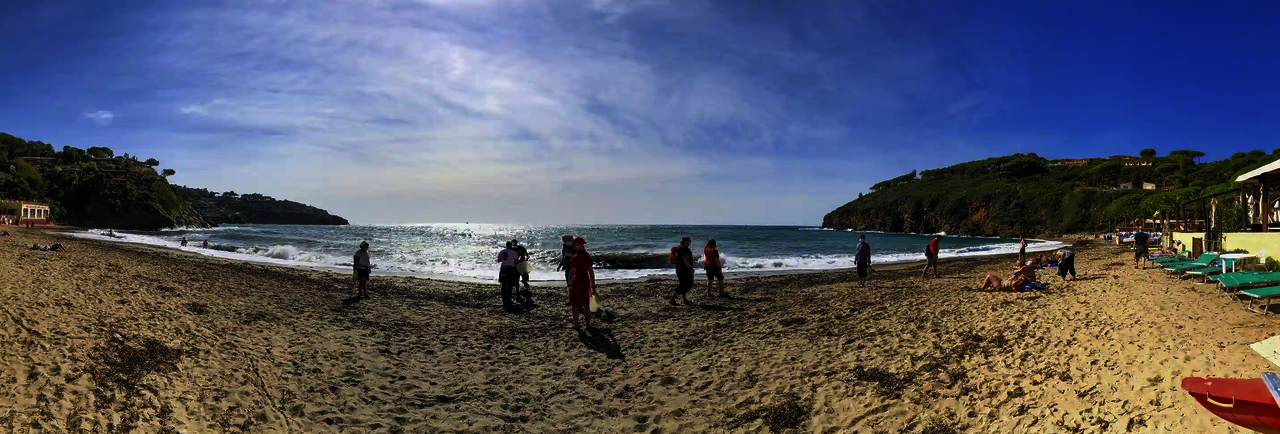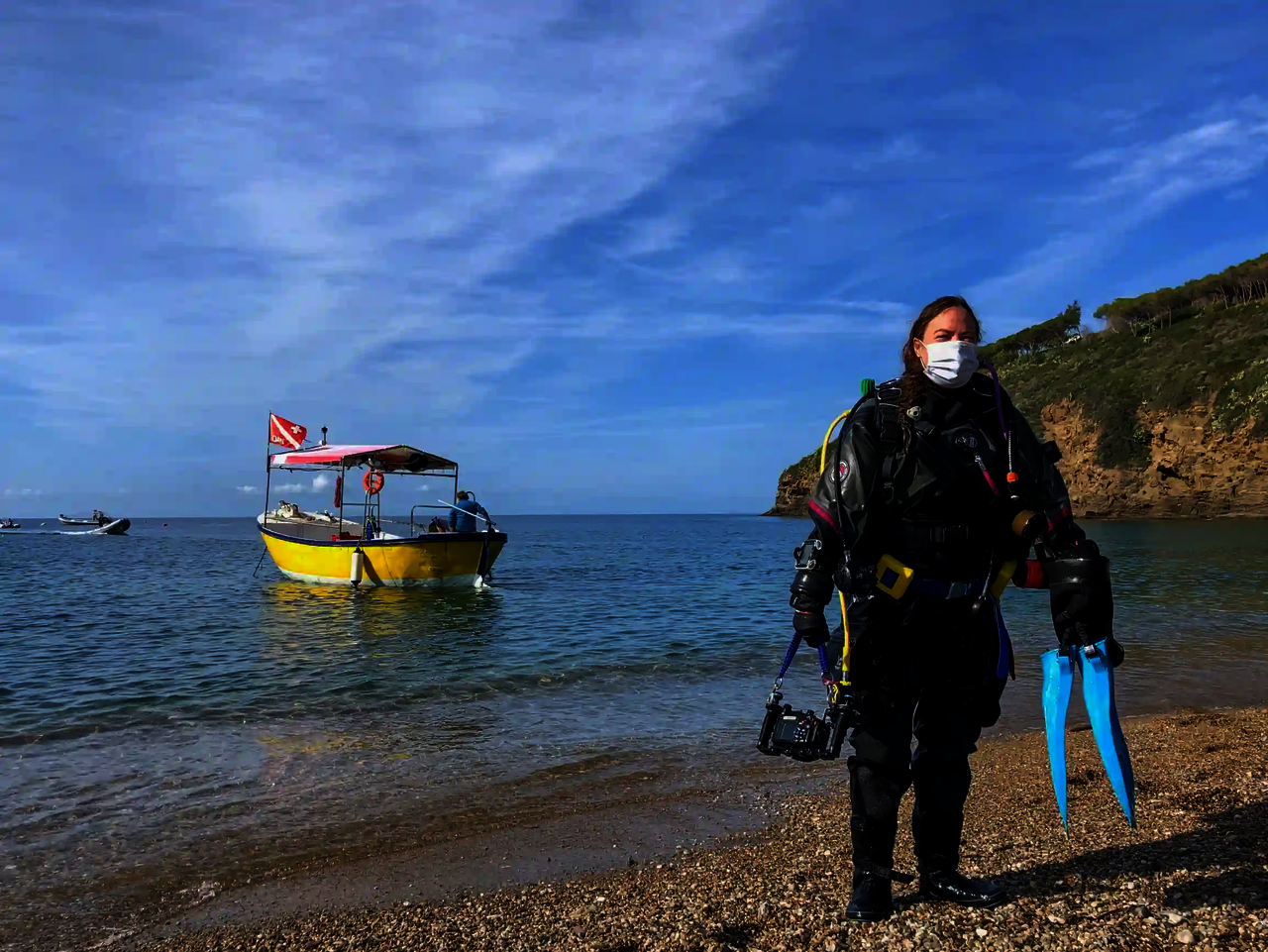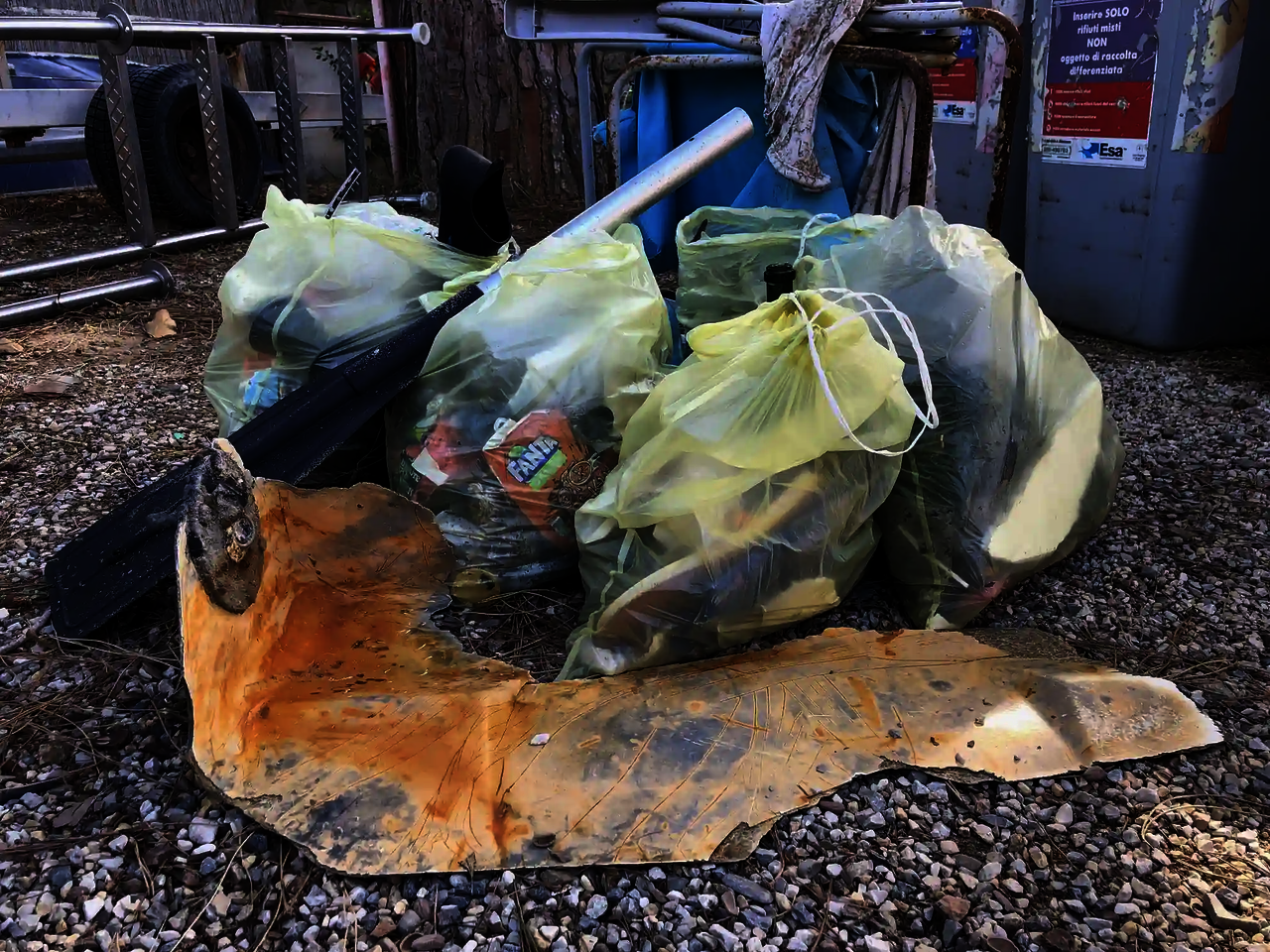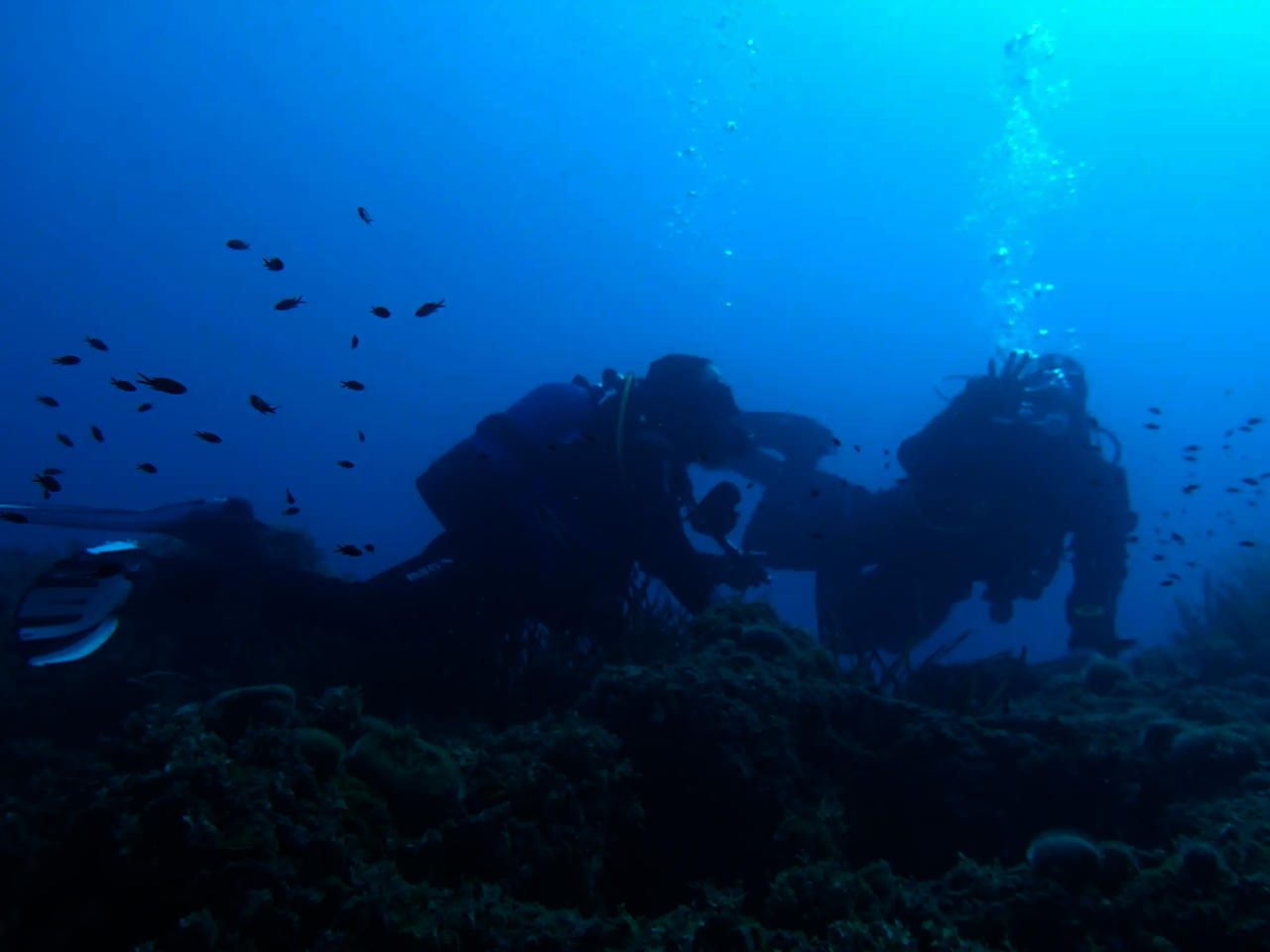If you're considering SAP Consulting or just want more information simply fill out the form available via the button or call us at +4962130982615
To the Form
SI PRO Employee Angelika Krause wants to understand plastic pollution in the oceans. She conducts diving expeditions for this.
Angelika, how did your engagement start?

I grew up by the North Sea coast.
It probably was just a question of time until I saw myself confronted with plastics in the ocean when I started scuba diving in my twenties. I developed more and more interest in this topic and also to engage whilst diving.
What is your experience up till now?
During the 1980s the topic of plastic waste was a lot more present in West-Germany than today. Jute bags with the catchphrase “Jute instead of plastic” (“Jute statt Plastik”) were marketed. But the reunion of West and East Germany let the topic of plastic pollution fade into the background. Today we try to catch up with our societal negligence. But due to the rapid industrial growth we fell far behind this task.
The European Union issued directives which were put into national laws. Hence, we developed our Dual System in Germany. Yet, it compares unfavorably to our neighbors. A huge lobby stands behind the recycling industry. For example, only few are aware that our rubbish is being sold to Indonesia. However, we are wondering as tourists or silent bystanders why the rubbish piles up and flows into the ocean in countries like Indonesia.
But there are also positive developments: In 2008 I lived in Guatemala, Central America, where I also took the liberty to travel the country. The beauty of a mesmerizing market in Chichicastenango directly at Largo de Atitlán was bestowed on me. If you ever traveled, you know that Latin America still works with disposable plastics at large. Though in 2016, all communities around the lake came together to collect every single piece of plastic and banned the use of disposable plastic from here on. Instead they use natural packaging like banana leaves for example. Those communities understood the harm of plastic pollution, searched for a locally suitable solution and put it into action.
What experience could you make during educational leave?
Today every single one of us eats the plastic amounts of one credit card per week. We consume this plastic as microplastic with our food. Whether we want to or not. Of course, we could say not to eat fish anymore, but that would be a naïve fallacy.
It was interesting to see the difference between the German and Italian recycling system. – This educational leave took place on Elba. – The Italians are a lot more precise and even have a bin for “I’m not sure”. The German black sack should be the equivalent to this bin, but that’s not the case. For instance we throw our pizza carton with cheese still stuck to it into the paper bin, though our dual system needs us to separate the different types of rubbish. The devil is in the detail.
Quite often we only observe private households and yet we know very little about the disposal strategies of enterprises and industry. More transparency is necessary. Also every single one of us should look into garbage disposal in their private area. Just because something is right for one us doesn’t make it right for everyone or vice versa. Garbage disposal is politicized on municipal level.
The most important insight though is that our politicians started with good intentions in the 1980s, but throughout time “more important” political topics supplanted the topic of disposable plastics. Today we are easily 30 years behind and politics tries to stem the dereliction with quick shots.
What’s next?
I will continue to participate in projects globally. Every diver can take part by diving and cleaning, for example in the river Main or Lake Zurich. If you are interested in a so-called clean-up dive, events take place regularly and such can be found on the internet.
I’m interested in a bigger, more time consuming project as well: to collect ghost nets in the North Sea. The fishing industry and the EU agreed upon cutting fishing nets where it could be live-threating for the ship’s crew. But in such an event, the crew is obligated to report the exact location and time where the net was cut. Those ghost nets are then recovered by a team of volunteers.
What are the insights for your consulting projects?
Most of SI PRO’s clients are in the chemical or food industry. Of course, it is not possible to not use plastics anymore – disposable plastic is being used in any industry as well as privately – but we can decrease the impact. It is not my intention to missionize, but to talk about the issue on hand openly. Hence, it is possible to decrease the use of disposable plastics without increasing a company’s investments, rather using what’s already available. Various alternatives are already available but scarcely communicated. One example is “mycelium”, which is a fungus used to replace Styrofoam. One of the advantages of mycelium is the absence of static electric charge. Furthermore, the packaging is 100% biologically degradable. Also, no water, light or chemicals are needed to produce the fungus packaging.
Some of my clients have the budget to search for plastic alternatives, other clients positioned differently. Both is absolutely acceptable – but: Everyone can look for already existing alternatives and agree with their suppliers to use such sustainable packaging.
There is still room for improvement.
Interesting Links:




